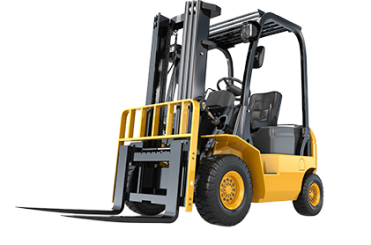Forklifts are industrial vehicles used for lifting and transporting materials over short distances. They are equipped with two forks at the front that can be raised and lowered hydraulically. Forklifts are commonly used in warehouses, distribution centers, and manufacturing facilities to move pallets, crates, and other heavy loads. They come in several types, including:
Counterbalance Forklifts are the most common type of forklifts, with the weight of the vehicle counterbalancing the weight of the load.
Reach Trucks are designed for use in narrow aisles, with extendable forks that can reach into racking to pick up loads.
Order Pickers are used for picking individual items from shelves, with a platform that lifts the operator to the desired height.
Pallet Jacks are used for moving pallets within a warehouse, typically over short distances.
Rough Terrain Forklifts are designed for outdoor use on rough or uneven terrain, with larger tires and a higher ground clearance.
Forklifts are essential for efficient material handling in many industries, and they are equipped with safety features such as load sensors, horns, and lights to ensure safe operation.

